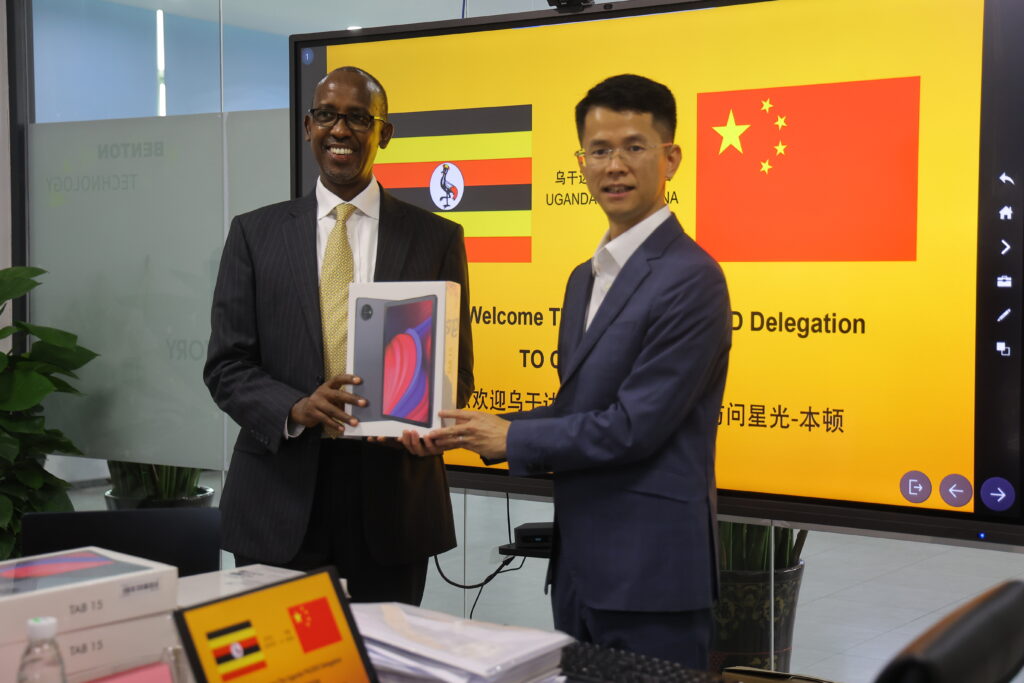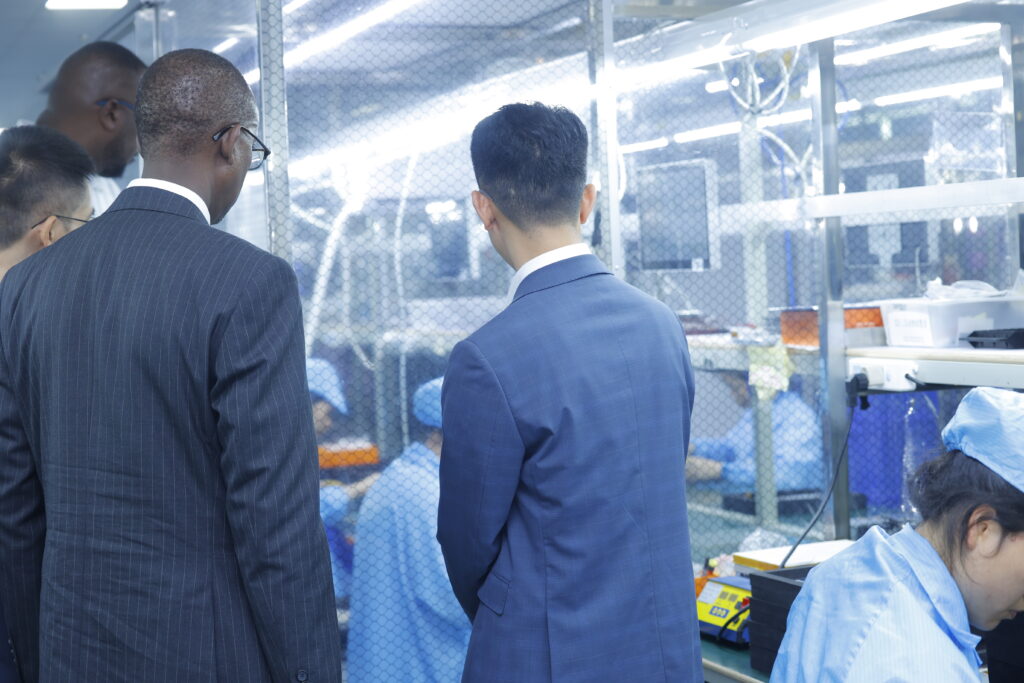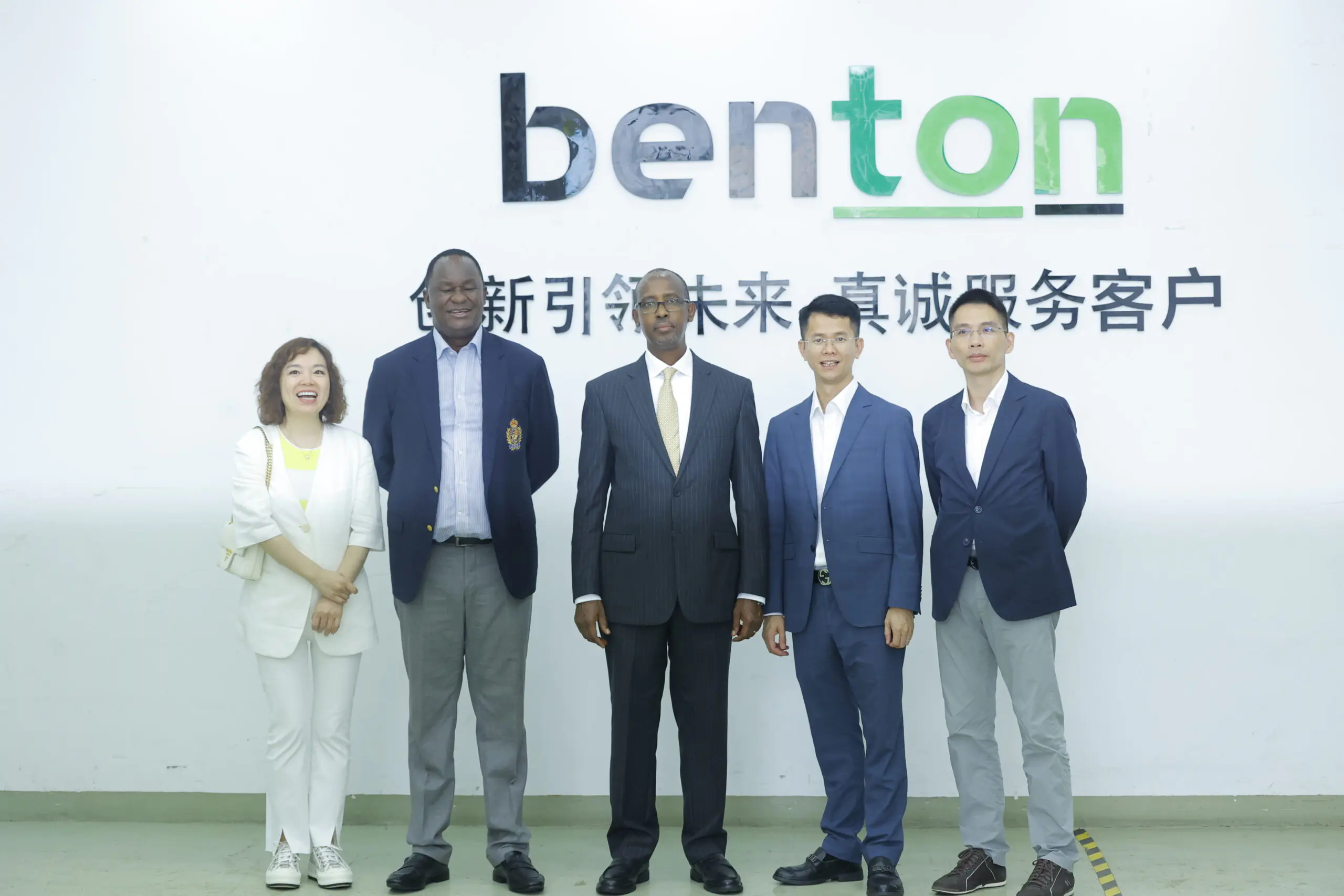Benton Technologies Company, one of Shenzhen’s leading manufacturers of laptop computers, tablets, desktops, and makers of educational software will be investing USD30m in an assembly and production plant of one million laptops and tablets for Uganda’s primary and secondary schools. The company officials led by Mr. Li Kaifu and Mr. Victor Zhang on Saturday conducted the Presidential Advisory Committee on Exports and Industrial Development (PACEID) delegation in their high-level 20,000 square meter manufacturing facility on the outskirts of Shenzhen city of Guangdong province. The facility employs 300 people and produces 2000 units per day.
PACEID’s nine-person trade and export delegation comprising of government and private sector officials, was led by Chairman Odrek Rwabwogo. The team was in China to conduct buyer-seller sessions for Ugandan agro-industrial products for the China market and attract investments in food and mineral processing in Uganda. Shenzhen town, which is close to Hong Kong, is one of China’s fastest-growing electronics and export centers in the world. PACEID hopes to attract Chinese wholesale and distribution companies for Uganda’s food products. Uganda has a target of new USD6bn in five years from coffee, grains, dairy, beef, bananas, poultry, fruits and vegetables, tourism, cement, steel, and some others from the thirteen key products the government is focusing on. PACEID has set a target of USD100bn work of exports by 2062 when Uganda makes a century as an independent country.

Benton Technologies, said Mr. Li Kaifu, “integrates design, research, and development and is a producer of high-quality products in the computing industry for schools and institutions” He said, “It is a great opportunity to partner with Uganda and fulfill the vision of President Yoweri Museveni to add value to your mineral products by assembling some of our products in Uganda”. He added, “Uganda has provided good incentives to us and if we keep to the schedule, we should be able to bring in some inputs and assemble as soon as practicable”.
The company which sells its products to Amazon, AT&T, Rakuten, and Target Retail, some of the largest retailers and telecommunications providers in the USA, visited Uganda in January this year and met President Museveni who requested them to fulfill the vision of a growing computing industry to support manufacturing in Uganda. The company produces seven- and fourteen-inch children’s tablets for schools, mini personal computers, Point of sales (POS) machines, and conference projection equipment.

Benton Technologies supplies 30 percent of its products to the US market,15 percent to Africa and the rest to the EU and South America market. It has 31 international customers including the governments of Malaysia, Myanmar (Burma), Kenya and Tanzania. The computing chip sets the company uses are made in partnership with USA’s Qualcomm and South Korea’s Samsung. Odrek Rwabwogo told the Benton Technologies team, “Uganda needs to graduate from the importation of PCs and tablets which cost us more than USD160m annually, and begin assembly and eventual manufacturing of these items in the country.
“The cables, circuit boards, plastic coverings, packaging material, can all be produced in Uganda if we are disciplined and enforce standards and stop taking manufacturing with a sense of casualness”. He added, “I am impressed that the village of Shenzhen of forty years ago, where Deng Xiaoping passed in 1992 before retiring and said China will never be poor again, now receives orders of high-level products from all over the world and it is an excellent city to work and live. I believe that our country too can do this very soon if we keep focused”

Rwabwogo urged Benton Technologies to think through a full value proposition to Uganda incorporating energy solutions for the laptops to village schools, and internet accessibility to facilitate studies for studies and repairs and maintenance online. He also asked to think through a good distribution network that ensures products reach students and schools on time and are kept in good working condition for at least six years.
On Sunday, the PACEID delegation traveled to the region of Xiamen to meet coffee processors and other commodity off-takers.

